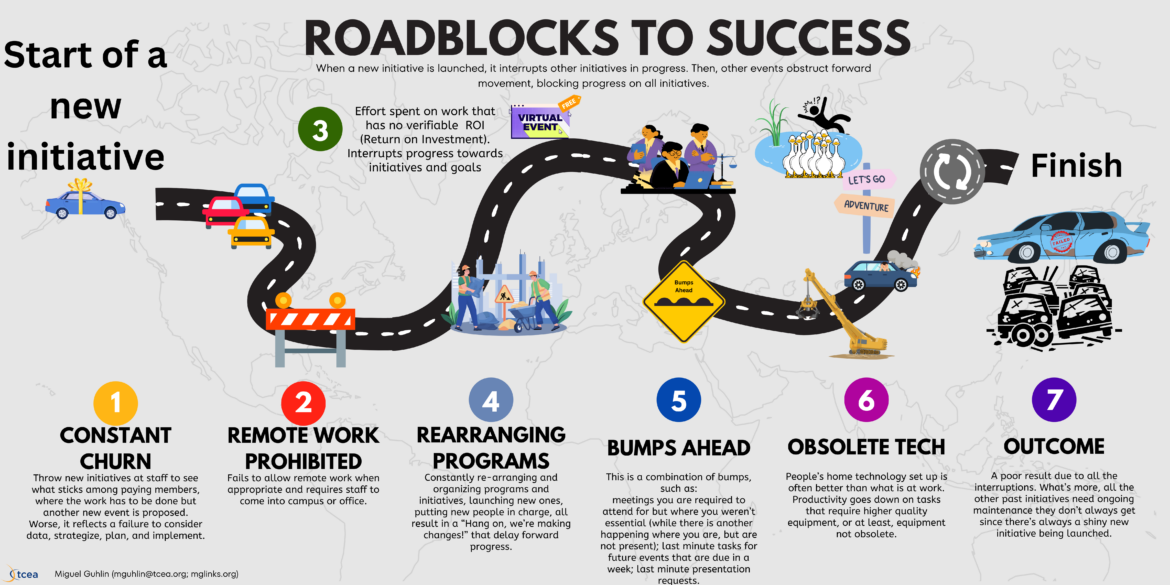The Obstacle is the Way But Detours are Nice, too

One of my favorite quotes is one popularized by Marcus Aurelius in the foreword of Ryan Holiday’s book, The Obstacle is The Way. It captures one of those insights life beats into you five words. It seems obvious in hindsight. Ryan Holiday quotes Aurelius in this way:
Our actions may be impeded . . . but there can be no impeding our intentions or dispositions. Because we can accommodate and adapt. The mind adapts and converts to its own purposes the obstacle to our acting. The impediment to action advances action. What stands in the way becomes the way.
My blog entry linked below does not aspire to such lofty wisdom. It begins as an observation, a way of capturing the roadblocks I have encountered and sought to work through or detour around. I suspect that my love of the “roadblocks and detours” approach to writing a blog entry goes back to the time when a TEA Monitoring Committee came to my school in Edgewood ISD in my 3rd year of being a public school educator (4th year if you count Private, Catholic School experience, which the State of Texas does) and my first year as an “Campus Instructional Technology Coordinator.”
To address our use of technology, I hit upon the idea of roadblocks and detours. The roadblocks were issues the campus staff and/or students were facing, the detours the way around them through the use of technology. I am happy to report that my first experience with the Texas Education Agency earned the campus a commendation, snatching victory from the jaws of defeat. Other campuses being reviewed did not receive such favorable outcomes.
This mattered because, at the time, my campus principal (David Gonzales) and I stood against the onslaught of Integrated Learning Systems (ILSs) in the form of SuccessMaker being deployed district-wide. At our campus, though, our focus was on higher-order thinking skills (HOTS), using technology as a productivity tool, and that approach apparently won the positive regard of the TEA Monitoring team.
In the end, we still lost the fight with the Superintendent. She pushed drill-n-practice into all the school computer labs, earning that rumored kickback cruise and other perks. My principal faced forced retirement. I moved on to East Texas, where I became a District Instructional Technology Specialist, later coordinator and ultimately director in educational technology.
Was it worth it? Yes, yes, it was. Even though we lost the war, we won the battle and that made a difference for many staff and students. If I had simply acceded to what inspired the roadblocks, where would I be now? Taking the detours, that road less travelled made all the difference.
The Blog Entry
Here’s an excerpt from the blog entry inspired from my observations:
Navigate K-12 leadership roadblocks and detours as you learn how to identify common roadblocks and implement data-driven solutions. Imagine you’re a superintendent, director, principal, or a person tasked with a job. You have some autonomy to do amazing work, but roadblocks often appear. A few roadblocks aren’t that big a deal, but others drain your energy. How can you avoid hitting every pothole on the road to success while navigating K-12 leadership roadblocks and detours?
One way is to be aware of the challenges before or as they happen and have an exit strategy. Before we talk about detours, let’s revisit some common roadblocks.